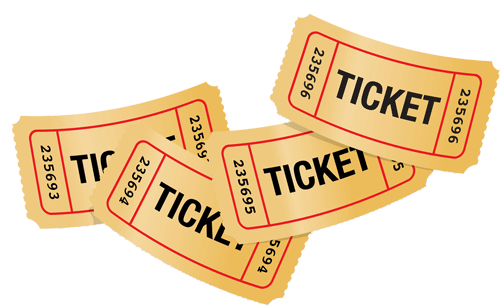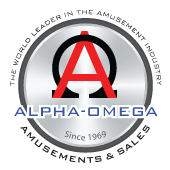 Here’s the Ticket
Here’s the Ticket
AMOA Council of Affiliated States Is Most Important Meeting for Both Amusement Game and FEC Industries
Thirty states were represented at the 2014 AMOA State Council Meeting in Tampa, FL Feb 6-8. This is my favorite yearly meeting where AMOA affiliated state associations discuss issues that affect our industry and how they have or currently need to deal with them. These issues include how to fight against sales taxes on prizes, gross amusement receipt taxes, personal property taxes, city, county, & state game licenses, prize/play limits, amusement game and gambling language differences, industry codes (workman’s comp), and many more that negatively affect small businesses. Almost all of these issues are the same that FECs face. Grass roots lobbying efforts are the best way to protect our industry against abusive laws. AMOA has been doing this for 60 years and there are many success stories that are helping 3 new state associations (CEMA- California Entertainment Machine Assoc., AMOA of Florida, and Maryland AMOA) have a solid voice in how amusement game laws need to be amended.
Manufacturers also attend and present new technology ideas for moving our industry forward. There was also a presentation, AMOA Legislative Update from Washington by Michael Zolandz of Denton’s, that covered newly passed and potential federal laws including Internet gaming, the updating and possible reclassification of amusement games from the 1960-80’s to better reflect new technologies, and new regulations for credit/debit cards.
Our industry has had better success at the state level then on a federal, county, or city level. Those states where they have personal relationships with their legislative representatives provide them with the opportunity to let them know how our industry is affected by proposed legislation. In many instances the legislators are unaware of issues that negatively affect our industry. This is happening in states that have casinos and where the legislators are intent on shutting down sweepstakes games and in some cases unregulated adult gaming.
Florida’s laws need to be amended because just about every game is illegal because of its 75 cent prize limit law and gambling machine definition. The new AMOA Florida has joined a coalition of other groups and is doing a great job of educating legislators. The Florida Lottery Commission has proposed changes to increase prize value limitations (currently 75 cents) to $5.25 or 15 times the price per play for traditional ticket-style redemption and a prize limit of $50 wholesale for machines that vend prizes directly. This proposed law also requires that an amusement game “enable a person to play a game in which by application of skill (that person) may receive merchandise or points or coupons that may be exchanged on site for merchandise.” Other amendments include reducing the 50 game requirement for redemption status and that games can be activated by other payment methods than only by coins.
It may take some time because behind the scenes there is a strong lobby to legalize casino gambling in 2 southern counties and this will require a complete rewrite of the current gaming laws. The new association is confident that the above changes will soon be amended.
In California, CEMA is fighting a proposed $10 prize limit and the same is happening in Maryland. The sad fact is that law enforcement likes prize limits so they have a quick and easy way of policing violations. I am hoping that one of the State associations will come up with proposed language that can be used to legally define the difference between an amusement game and a gambling device that will be acceptable to many of the states. What we all learned was that one state can learn from another on how to be successful in protecting our industry and use the actual language that was passed in that state.
Perhaps over the next few years, all 50 states will be represented and FECs across the nation will join together in grass roots state and federal lobby efforts.



